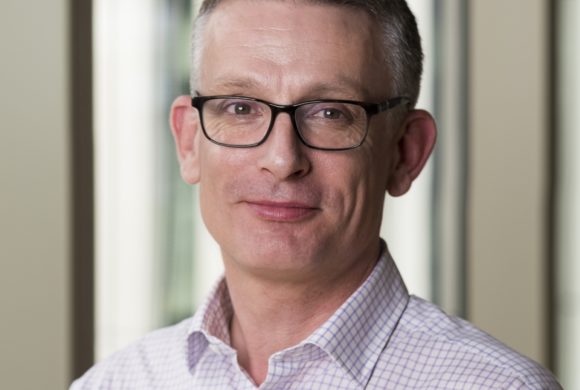
To mark World Mental Health Day, 10th October, RedLaw were privileged to interview Richard Martin who leads byrne.dean’s work on mental health. He is a former City law firm partner with his own experience of serious mental illness. He sits on the steering committee of the Lord Mayor’s This Is Me in the City campaign to reduce the stigma around mental illness through people sharing their personal experiences.
Richard, you were an employment lawyer working for City law firms for over 20 years. What aspects did you most enjoy and which did you least enjoy?
I came in to the law, I hope not completely naively, because I wanted to help people and was driven by a sense of fairness. It was not always possible to feel that you were doing that in city law firms but the best times I had were doing just that, working collaboratively with clients who were concerned to do the right thing. And working to develop younger lawyers and help them establish themselves in their chosen career. The things I enjoyed less tended to be around financial issues – budgeting, targets and the like. I always knew that I could make a decent living from the law but that was not what motivated me and so as practice being increasingly about meeting targets and financial planning, I found that quite dull and seemed to be missing the point a little. As I became more senior I also struggled with the balance between the pressures of fee earning, management and then me and my family.
Tell us what led to your move from law and then into your current role.
The starting point was getting ill. In 2011 I had a pretty major breakdown that resulted in me being hospitalised and spending a couple of years trying to recover. It was a slow process. Over that time it became increasingly clear to me that for as long as going back to work meant going back to my old role, the prospect filled with me way too much fear to even contemplate. So I eventually resigned from the firm – they were very good to me and had kept my position open for me. Only then was I able to think about what I wanted, and felt able to do. I developed an idea around approaching workplace situations from a more holistic perspective, thinking about the emotional issues as much as the law, and bringing in the learning I had developed in psychotherapy and counselling training, as well as my own experiences. I was talking to an old contact about this who asked whether I had heard of byrne·dean. I hadn’t at the time but a half hour conversation on the phone with Matt Dean was enough to persuade me that byrne·dean was where I belonged. The work I do now around mental health is an obvious extension of our broader purpose to create kinder, fairer, more productive workplaces.
You are Director of Byrne Dean, a leading provider of workplace training and HR/ER support services, heading up the mental health training division. What have been your greatest achievements in this role?
I feel very privileged to do the work I do. A particular highlight was getting a room full of people in a law firm to introduce themselves to each other and explain why they were there. Each of them told a story about their experience with mental illness, whether themselves or someone close to them. None had spoken about it before at work and knowing that I had played a part in creating the safe place for that to happen felt good. When someone comes up to me after a training session to thank me and to say that it has helped them realise they need to seek help is always a mixed one – I am pleased that I have enabled someone to take that important first step and hopefully helped them avoid more serious problems, but this is of course always touched with regret at the suffering they are experiencing. Chairing an event at the Mansion House earlier this year where we were launching this year’s This is Me campaign was a great honour and having a partner from PwC talking about his mental health problems in that environment and to that audience brought home how far we have come in breaking the stigma around mental illness. There is obviously still a way to go. But although it sounds like a cliché, every day conversations where I connect with people on a human level – they are the real highlights.
You work with over 100 clients across the globe including investment banks, media/tech giants and law firms. Which industry is leading the way forward in the areas of well-being and mental health workplace schemes?
I would say that some of the banks, Barclays being the prime example, have been pioneers in this field. The same would be said of PwC. Sadly, a number of the organisations that have been working in this area for a while were prompted to do so because of suicides. Various law firms have been doing great work for a long time. I think that it is less about sectors or industries but more particular companies and organisations. Although the city is synonymous with long hours and stress, in fact the city has played a leading role in getting the issue of mental health and wellbeing on the agenda for businesses.
How are law firms building resilient support strategies for employees in respect of well-being and mental health?
Most law firms have great supports in place to look after people as and when they get ill. The starting point for moving beyond that is creating a culture in which we can talk about our mental health, talk about how we are, honestly and safely. That requires the firm to give the permission which generally needs to come from the top. Then people need to be given training to understand what it is we are talking about – because none of us get taught about mental health as we grow up – and to get the language. Armed with those three things, permission, information and language, conversations can begin. Ideally you would also train your managers and partners in how to have appropriate, supportive conversations too. Stress is one of the major problems, so helping people understand what stress is and how they can play a part in managing their own stress is critical. Understanding how we think is at the heart of that. Stress is our reaction to the world so if I can own that reaction a little more, manage some of my unhelpful unconscious thinking, I can better manage my stress and so my wellbeing. But it is not all about the individual. The way I am treated by my boss, the conversations I have with him/her, whether I feel included in the work place, whether decisions about work allocation, promotion and pay are fair, whether I have some autonomy about where and when I work, whether I am allowed to turn off the email at some point each evening, all play a huge part in my overall wellbeing. And how can we each develop our capacity for coping – yes we going to feel pressure, and sometimes it will become too much, but what can we be doing to maximise our capacity to cope – our sense of purpose, our diet, how we sleep, emotional intelligence, understanding ourselves and other people. There is so much that goes to how we are, but the starting point is being able to talk about that.
Stress is known to be one of the main contributors of mental illness. The law is renowned for its high pressured and long-hour culture. What is the biggest change firms could make to have a positive impact on the mental health and well-being of their lawyers?
I have covered a lot of that in the previous answer. I guess what I would add is a bit of a metaphor. For years people built using asbestos and then we started to understand the dangers of it. We taught people how to handle it safely and we provided appropriate equipment. In the end we stopped building our buildings with it. I think the same challenge faces law firms and other professional service firms. It is great that we raise awareness, great that we put in place resources, great that we do as much as we can to reduce the harm that our high pressured working environments create. But at some stage we need to stop building them like this – we need to stop building with asbestos. It is a challenge but people are making a start. The Mindful Business Charter was launched on 10 October, World Mental Health Day, a joint initiative between various different firms and institutions which seeks to remove unnecessary stress, where clients and advisers are open and honest with each other about the demands, where it is ok to push back and challenge, where there is openness, respect and trust. That is the sort of initiative which could really make a difference. It is not about shirking or not working hard, but doing so when it is necessary, and being honest about when that is.
Could you tell us a little about the Lord Mayor’s “This is Me” campaign and what it looks to achieve, and why is it so important for you to be involved in the cause?
The campaign is all about breaking down the stigma around mental health and illness. There are two primary ways we do that. The first is story telling – getting ordinary people in their businesses to talk about their experience of mental illness – my name is Richard, I work in x office, I like football and eating out and I suffer from whatever it may be. This enables people to have conversations, and that is how we change cultures and break down the stigma. The other way is through the green ribbon campaign – getting tens of thousands of people across the city, the country, and increasingly the globe, to wear a green ribbon to say they are supportive of people with mental illness, that they want to break the stigma. That, and getting a series of iconic buildings lit up green every year sends a really powerful message. It began as a city initiative but is now spreading around the country and is also inspiring similar initiative in other parts of the world. It is one of the ways in which Barclays have been pioneers – the movement began there – and they can be truly proud of the change they have made, within the bank ad way beyond it.
What’s the best piece of life advice you have ever had given to you?
“Be you, because all the other roles are taken”. I think that was Orson Wells originally. It is also worth noting that being you is the one role that you are uniquely well placed to play. I probably could have done with that advice a little earlier in life – I spent a long time trying to be what I thought other people wanted me to be, or something that I thought would help me fit in. I feel a lot happier, and safer, being me.


